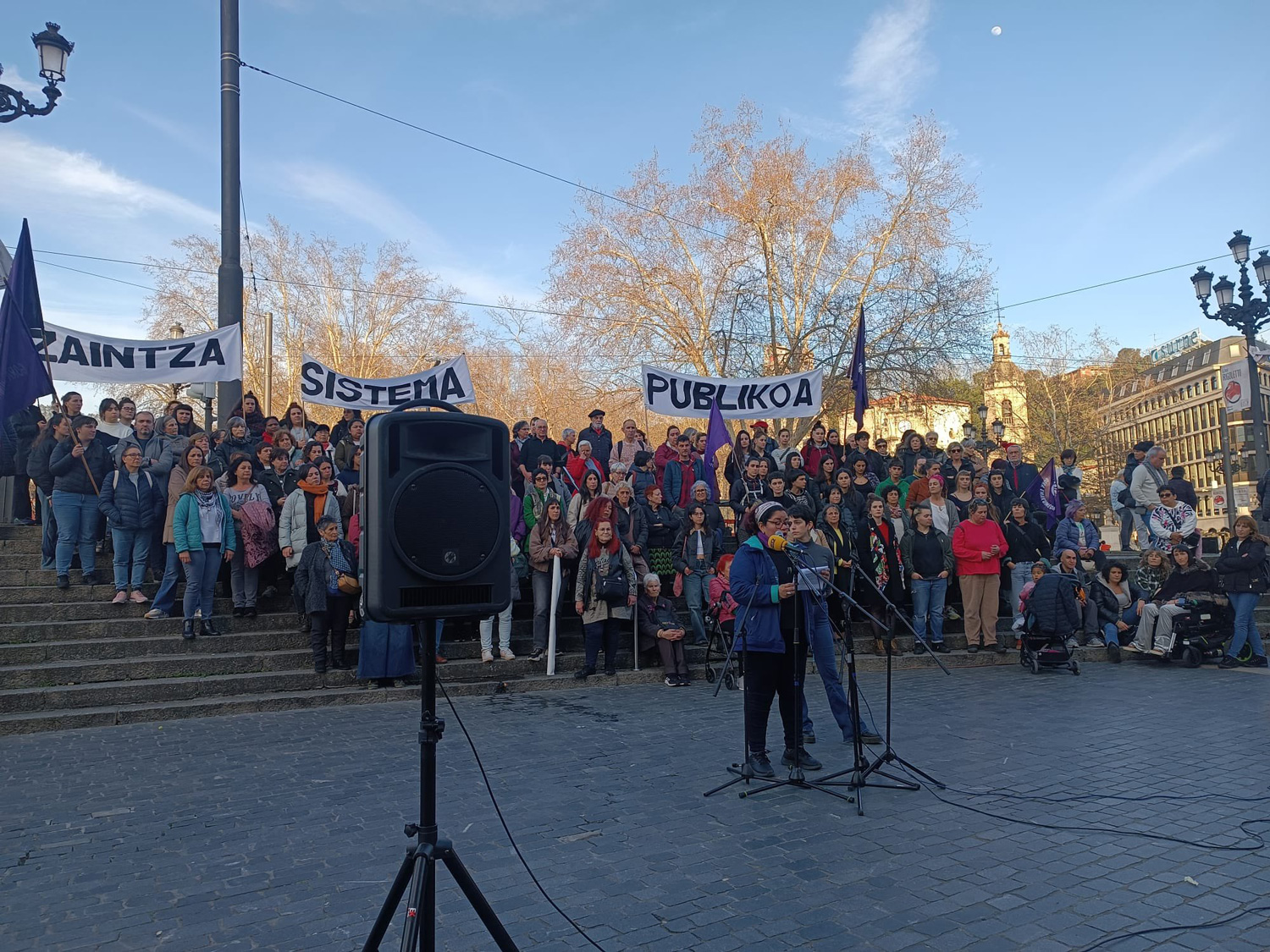
- The feminist platform Denon Bizitzak Erdigunea has made a public appearance this February 20 to make known the following steps: They denounce the lack of "response to the letter" by the institutions with the support of the public and community surveillance system. ARGIA spoke to Ainhoa Olaso, a member of the platform.

They denounced in public hearings the lack of "response to the measure" by the institutions. How do you interpret that silence?
The answer we received from the institutions was not what we needed. They do not take into account the voice of those of us who are concerned, they do not value a general feminist strike. They are not interested in getting in front of all the questions we make, because we all know what their answer is: they are not interested in questioning or changing their policy. Obviously, the choice between our lives and capital.
Their aim is a Community public care system, underlining their "will and ambition". What is your organization?
The assemblies activated around the popular strike have taken one form or another – feminist assemblies, strike committees… – and now, after the strike, the footprint is different in the place. We are working with future challenges, local dynamics and pedagogy of the collective right of care. On 28 January we met for the last time in the national feminist assembly and gave ourselves time to talk about the model dynamics and knots of peoples. There are interesting dynamics within this process: Vitoria-Gasteiz, Bera, Gernika, Amurrio... National assemblies have been very important as a decision-making space around the dynamics, to feed, to debate. This operation is in principle to be maintained. At the level of Hego Euskal Herria, instead, we gather more often in coordination. We are holding meetings with different sectors, we participate in the interunion table as part of the feminist movement, the associations of household employees are also united, the relationship is direct. We are organising meetings by mid-October.
This process has also had consequences for the feminist movement: it has activated the assemblies, it has strengthened the desire, it has ignited some networks, it has somehow marked the agenda.
What strength and energy does the feminist movement have in this time since the general feminist strike on November 30?
This process has also had consequences for the feminist movement. It has activated the assemblies, it has strengthened the desire, it has ignited some networks, it has somehow marked the agenda. The place will be different, but I believe that the fact that there are more than 300 members in the last assembly is cause for satisfaction. There is a desire. "What are we going to do now?" Curiosity about the question. I think it's a sign of confidence in a movement.
What are the next steps or objectives?
We reaffirm our intention to continue working in the Assembly. We come together with different sectors and build common strategies. We will continue to question the institutions. At the local level, dynamics will be implemented according to the country ' s circumstances and needs and the People ' s Agreement will be disseminated, strengthening alliances. We want to be agents of both feminist movements and the agents that unite in this process, whether associations of household employees, unions, sex workers or members of social agents: We complete the People's Agreement and we want to put the demands on the agenda, we want to influence the decision-making spaces.